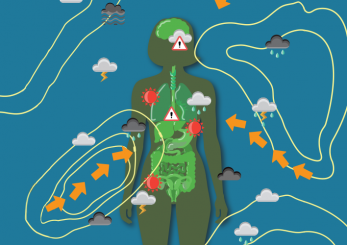Cluster leads: Anand Gnanadesikan and Marsha Wills-Karp
Addressing the complex problem of climate change will require humanity to identify and promote solutions that maximize synergies and minimize conflicts between human health and climate adaptation and mitigation. Through the creation of the Johns Hopkins Climate Initiative, this cluster will develop mitigation and adaptation strategies to combat the health effects of climate change in an equitable, adoptable, sustainable, and economically feasible manner.
This cluster aims to build a program at JHU that addresses THE challenge of the 21st Century that impacts every other challenge we face. Cluster scholars will synergistically address major gaps in the research agenda and also provide policy solutions that consider local context and methods to effectively implement viable methods of climate change mitigation and adaptation.
This cluster will be recruiting 4 Bloomberg Distinguished Professors and 4 junior faculty members to collaborate together along with existing Johns Hopkins faculty in these areas of research.
Interested in this cluster? Contact us to learn more.
More Information
Research Goals / Scholar Background
Establishing Johns Hopkins as a leader in the field of climate and health requires deepening its subject-matter expertise in three focus areas that will support this cluster’s goals. JHU currently lacks a critical mass of transdisciplinary scholars who approach the climate and health challenge from a systems point of view. This cluster provides an opportunity to bring in scholars who have developed a deep knowledge of processes relevant to climate or greenhouse gas reduction (traditionally found in the environmental sciences) but who are committed to linking this knowledge to actionable strategies for protecting health and well-being by engaging disciplines such as epidemiology, communications, politics, or economics.
Cluster scholars will have expertise in one or more of the following areas:
- Climate modeling, health surveillance, risk assessment
- Systems engineering, health assessment
- Policy, economics, climate policy, communications
Key goals of this cluster:
- Define climate change impacts on health: Identify greatest climate sensitive health risks
- Climate mitigation and adaptation: Design, monitor, evaluate strategies for climate change resilience that maximize health co-benefits with limimted unintended consequences
- Social engagement: Engage social and political dimensions of health and climate, inform climate policies and interventions, and engage with stakeholders

